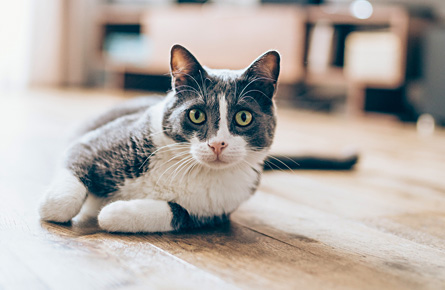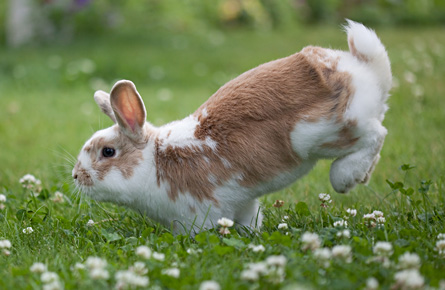Pet neutering, also known as spaying for females and castration for males is a routine surgical procedure performed under general anaesthesia to prevent animals from reproducing. It is a common, low-risk operation that is frequently carried out at our practice.
Neutering is a responsible choice for pet owners, offering significant health and behavioural benefits for your pet.
At Gower Vets, your pet is in the best hands. Our experienced team of veterinarians and nurses, along with our state-of-the-art facilities, ensure your pet receives the highest quality care.
As a member of our Pet Health for Life plan, you can enjoy a 10% discount on neutering treatments. Simply schedule an initial consultation with one of our veterinarians to discuss the best time for your pet's procedure.
Spread the cost of essential healthcare for your pet

To spread the cost of routine and essential healthcare for your pet, we offer our Pet Health for Life plan, which includes 10% of neutering services, an annual health check for your pet and much more.
Benefits of Pet Neutering
Animals can be surgically neutered to stop them from procreating. Castration is the term for the removal of the testicles in males. It is known as spaying in females and entails removing the uterus and ovaries. General anaesthesia is used during the surgery.
- Prevents unwanted pregnancies and womb infections
- Can help prevent tumours and breast cancer
- Can also help prevent testicular cancer and prostate disease
- Assists in preventing roaming and aggressive behaviour
- It’s normal to neuter! 86% of owned cats and 71% of owned dogs in the UK are neutered*
*PSDA Paws report 2020
When's the right time for my pet?
|
|
Male |
Female |
|
Cat Neutering |
From four months |
From four months |
|
Dog Neutering |
From six months although we will consider your pet’s weight, breed and behaviour |
Pre-season or at least three months after season |
Neutering Your Dogs
Castration is the practice of removing both testicles during the neutering operation for male dogs. Over time, this may lessen aggressive behaviour, among other advantages.
In order to prevent reproduction within female dogs, spaying entails removing the reproductive organs, either the ovaries alone or the ovaries and uterus together.
Cat Neutering
Cats mature reproductively quite rapidly. We advise neutering both male and female cats at approximately four months of age, in accordance with RSPCA and Cats Protection guidelines.
Cats and dogs go through a similar neutering procedure. For female cats, spaying entails removing the uterus and ovaries, whereas for male cats, castration entails removing both testes.
Rabbit Neutering
Neutering rabbits, sometimes known as bunnies, is possible as early as four months of age. Female rabbits have their uterus and ovaries removed, while male rabbits have their testicles removed, just like cats and dogs.
Since rabbits are very communal creatures, neutering them early in life can enhance their capacity to form bonds with other rabbits, resulting in a more contented and peaceful relationship.
Click on the links below to find out more.








